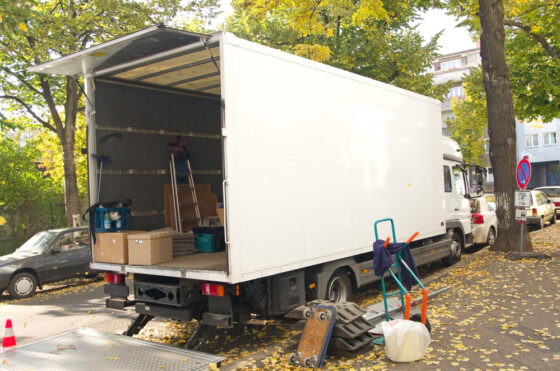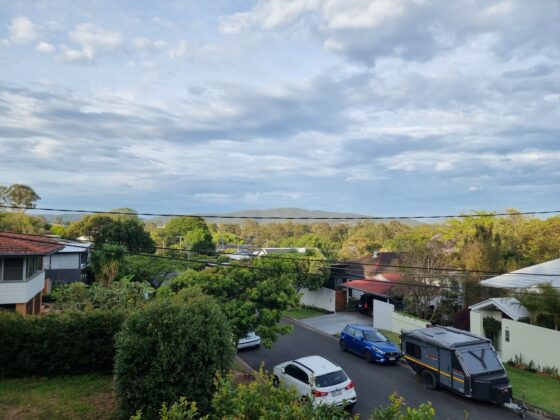Living in NL: How do you know when it’s time to go ‘home’?


If you see your move to the Netherlands as temporary, at some point you will have to go ‘home’. But when is it time to turn back and what should you bear in mind?
‘It was an easier choice than we expected,’ says clinical researcher Rob Hummel (28), who repatriated to the USA (New York State) with wife Alise in February after she decided not to renew her contract at the University of Leiden.
Whisperings
Had the couple stayed, they would have faced the integration process to secure permanent residency. ‘When you are a year away from that, you start asking yourself the question: Where do I want to start putting roots down?’ says Rob, who first came to the Netherlands in 2018.
Rob is one of over 100,000 first-generation migrants who leave the Netherlands each year, many to return to their country of origin. He describes the move as ‘more or less a practical choice’, but admits to ‘whisperings in our minds’ that had the pair wondering if it was time to head back.
‘There was just this sense of home and America that kind of wouldn’t budge to allow for Dutch culture to enter our lives completely,’ Hummel admits. It was hard being away from family, too. ‘People get old and you miss spending time with them and making memories … I haven’t been back to my home town in four years and you can always hear those familiar places calling your name,’ he says.

Family
Australian national Emma Friesen (47), who is gradually moving her things back to Brisbane after seven years in Utrecht and Amsterdam, also points to family as a major factor. The forced separation from them during the pandemic made her realise how important her home country was to her, and when she was eventually reunited with her parents, she knew she had to make the leap. She says: ‘I was shocked by how old they looked and how stressed they were, and I thought, I can’t stay here any more.’
Divorce also played a big role, and the flat she had shared with her ex no longer felt like home. ‘I was in this weird limbo,’ she says. ‘I knew I couldn’t heal properly in that apartment or in Amsterdam.’
Crossroads
‘The key triggers are that, in a certain way, you are coming to the end of something,’ says Michele Bar-Pereg, who has been helping expats move to and from the Netherlands for almost 40 years and is the founder of Tzuza and her own relocation consulting bureau. The impetus could be, she says, the end of a contract, death or divorce, or simply the end of your patience ‘because you want to start something new’.
For families, their child’s education can be a catalyst for the move, especially when it’s time to start high school. ‘Parents sometimes get panicky about where children are going to end up and home always seems the safest,’ she says. ‘They feel they can drive security into their children’s education, whereas if they are in a country that’s not their own, they do not know enough about it and they get nervous.’

Decisions
It might be time to consider repatriating, Bar-Pereg says, ‘when you reach a crossroads when decisions have to be made’ or when ‘the longing becomes overwhelming’. But she advises caution and is suspicious of words such as ‘home’ and ‘homesickness’, which don’t take into account how much the person and the place have changed since they left.
‘You expect so much about going back to the home country and it’s never the reality,’ she says. ‘The person that left their home country and is now returning is a different person.’
Bar-Pereg advises potential repatriates to make sure they ‘wholeheartedly want to do it’. ‘Create a plan and see if that plan is workable,’ she recommends. ‘Consider everyone who has to make that move.’ Be prepared for the challenges of repatriating, she warns. ‘When you return, it’s like a total relaxation of self,’ she says. ‘But that’s where the trouble starts … You’ve got to work as hard as you worked when you were in a new country.’
Change
Diane Lemieux, co-author of The Mobile Life, a guide to successful relocation, agrees. ‘The main stumbling block with repatriation is that people assume that they are going to a place that is known,’ she says. But, she continues, ‘there’s always difficulties and adjustment takes time’.
In fact, repatriation and expatriation have a lot in common. ‘If you are thinking about repatriation, start the book [The Mobile Life] at chapter one and have another look at repatriation in exactly the same way as you did expatriation,’ she advises.
Lemieux recommends evaluating the move carefully before making a decision and asking yourself: ‘What is it you want to gain? What is it that you are hoping that your life will look like? What is it about your current life that wants or needs change?’
Anticipating change and preparing yourself for it is also important. ‘Consider the differences and the impact that they will have on your daily life and how you can mitigate these differences,’ she says. Lemieux suggests, for example, considering where you might find like-minded people who, like you, might also have more of an international outlook.
Bitter-sweet
Despite all the challenges, for Emma, the move has been a success. Needing to own a car was, admittedly, ‘the biggest shock’, she says. And she misses her dog (awaiting quarantine) and hiking on the sand dunes. But shortly after arriving in Brisbane, she met someone new and has recently remarried. She says the best thing about being back is ‘being able to just pop in and see Mum and Dad and my niece and nephews’.
Rob, who was still packing up at the time of writing, describes the move as ‘wrenching’ and lists ‘the beautiful Dutch infrastructure’, ‘feeling more safe from harm’ and the ‘fair and robust insurance and health care situation’ among the things he will miss.
Leaving is particularly bitter-sweet as he and Alise were married in the Netherlands. ‘To extricate yourself from the place where those memories live is a big challenge for sure,’ he says. ‘It’s such a strange, beautiful little country with really wonderful people and it’s impossible not to feel sentimental about it.’
Thank you for donating to DutchNews.nl.
We could not provide the Dutch News service, and keep it free of charge, without the generous support of our readers. Your donations allow us to report on issues you tell us matter, and provide you with a summary of the most important Dutch news each day.
Make a donation